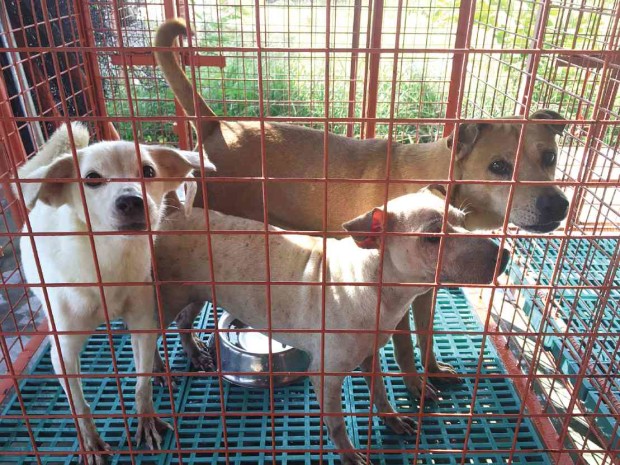American dream on hold for PH ‘askal’

INQUIRER FILE PHOTO/MARICAR B. BRIZUELA
MANILA, Philippines — The Filipino “asong kalye’’ (“askal) or “asong Pinoy’’ (“aspin”) dreaming of a better life with their humans in the United States will have to postpone their travel plans for the moment.
That’s because the US temporarily banned the importation of dogs from the Philippines and several other countries due to the “high risk for dog rabies.”
In a post on Twitter, the US Embassy in Manila issued a June 14 notice from the US Center for Disease Control (CDC) which prohibited more than a hundred countries, including the Philippines, from exporting dogs to the US starting July 14, 2021.
“NOTICE: @CDCgov has suspended the importation of dogs to the U.S. from countries, including the Philippines, classified by the CDC as high risk for dog rabies,” the embassy said.
“@CDCgov also suspended the importation of dogs from countries that are not at high risk if the dogs have been in high-risk countries during the previous 6 months,” it added.
Article continues after this advertisementAccording to the CDC, a temporary action is necessary to ensure the health and safety of dogs imported into the United States and to protect the public’s health against the reintroduction of canine rabies virus variant (dog rabies) into the US.
Article continues after this advertisementRabies-free since 2007
Dog rabies has been eliminated from the US since 2007, said the CDC.
The CDC estimates that 6 percent of all dogs imported into the US arrive from countries at high risk for dog rabies.
“Inadequately vaccinated dogs are not protected against rabies and are a public health threat. Rabies is fatal in both humans and animals, and the importation of even one rabid dog could result in transmission to humans, pets, and wildlife,” the CDC added.
It noted that last year, it identified a significant increase compared with the previous two years in the number of imported dogs that were denied entry into the US from high-risk countries.
“Due to reduced flight schedules, dogs denied entry are facing longer wait times to be returned to their country of departure, leading to illness and even death in some cases,” it said.
200 deaths a year
According to the World Health Organization (WHO), dogs are the main source of human rabies deaths, contributing up to 99 percent of all rabies transmissions to humans.
An estimated 200 Filipinos die of rabies every year with at least a third of deaths occurring among children less than 15 years old and about two-thirds of the total cases are males.
Some 1.2 million animal bite cases were reported in the country in 2018, a 462-percent increase from 2009, the latest data from the Department of Health (DOH) show.
In 2018, there were 276 bite victims who died due to rabies infection — or an average of 2.57 rabies incidence per million population. This means that a little more than two people per million population die because of rabies.
In 2018, only 53 percent of the estimated 8.9 million dogs in the country were vaccinated against rabies.
DOH data further show that 96 percent of animal samples that tested positive for rabies in 2018 were from canine samples.
—WITH A REPORT FROM INQUIRER RESEARCH